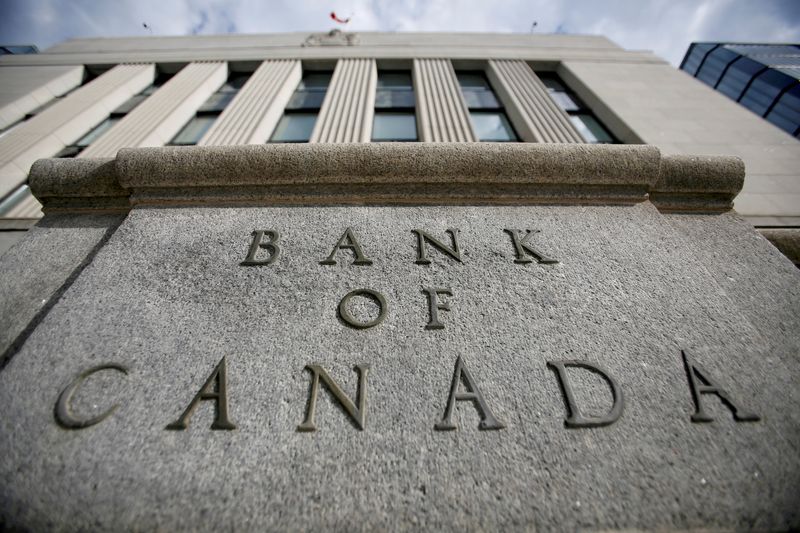Bank of Canada to gauge need for further rate hikes based on data – minutes
2023.06.21 13:59

© Reuters. FILE PHOTO: A sign is pictured outside the Bank of Canada building in Ottawa, Ontario, Canada, May 23, 2017. REUTERS/Chris Wattie/File Photo
By Steve Scherer and David Ljunggren
OTTAWA, June 21 (Reuters) – The Bank of Canada agreed that the need for further rate hikes would be determined by fresh economic data after it lifted rates to a 22-year high earlier this month, minutes from their policy meetings released on Wednesday showed.
On June 7 the central bank, which had been on hold since January, raised its overnight rate to 4.75%. In its summary of deliberations – or minutes – of the policy meetings that preceded the decision, the six-member governing council said growth and inflation had both been stronger than expected.
“Members were of the view that with the resurgence in household spending growth, the pickup in consumer confidence, and the slowing in disinflationary momentum, monetary policy did not look to be sufficiently restrictive,” the minutes said.
The governing council discussed whether or not it should signal a rate increase and then execute it in July, but decided that there was enough data to act immediately, the minutes said.
The council then agreed to “assess the need for further policy rate increases based on the incoming data”, the minutes said. The council was concerned “inflation could become stuck at a level materially above the 2% target.”
Ahead of the June rate hike decision, statistics showed April annual inflation accelerated for the first time in 10 months to 4.4%, and first-quarter GDP rose 3.1% – versus the central bank’s 2.3% forecast – driven in part by consumer spending.
Since the June decision, Canada unexpectedly shed jobs in May, a possible first sign of a softening in the labour market. But the latest retail sales report for April and an estimate for May that were released earlier on Wednesday suggest consumer spending has remained strong.
The governing council said it expected that second quarter growth would outpace the 1% annualized pace it forecast in April, according to the minutes.
“Governing Council agreed that the economy remained clearly in excess demand and that the rebalancing of supply and demand was likely to take longer than previously expected”, the minutes said.








